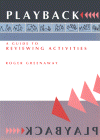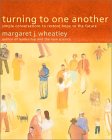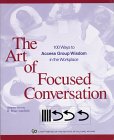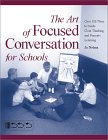HOME

• Quick Picks
• Roger's Choice
• Under £5
• Top 20 Sellers
• New Books
• Special Reviews
HOME |
 • Quick Picks • Roger's Choice • Under £5 • Top 20 Sellers • New Books • Special Reviews |
HELP |
| Roger's
Active Learning Bookshop All profits go to Save the Children. [View total] |
||
|---|---|---|
 |
||
|
I am always
on the lookout for books on my favourite subject:
reviewing.
I am puzzled by their scarcity, because so many books say how vitally
important reviewing
is, but then allocate very few pages to describing what effective
reviewing actually involves.
Using a sequenced approach to asking questions is usually sound advice.
But on its own, such advice presents
a very narrow view of how we can help people learn from their
experience.
A range of dynamic reviewing methods can open up so many more
possibilities for learning
and development.
Explore this site (see links opposite) if you want to be convinced of this. You will learn how to incorporate ideas from various media and creative arts to enliven and enrich your reviewing sessions - allowing learners to give and get more value from their experiences. (Roger Greenaway) |
| Discover how to
make reviews at least as engaging as the activities you are reviewing.
Find practical ways to help people learn from experience. Reviewing Techniques you will find in this book: Activity Map; Action Replay; Storyline; Empathy Test; Goal Keepers; Horseshoe; Missing Person; Back to the Future. Plus Guidance about: Reviewing with Playing Cards - a practical model. When to review? Not enough time for reviewing? What could possibly go wrong? Spot these traps and know how to avoid them. Top Tips for Reviewing |
|
Jack Mezirow
|
A critical review Edward W Taylor
|
 |
Guidance on planning reflection sessions and improving facilitation
skills. About the Author: Clifford E. Knapp is a professor in the Curriculum & Instruction Department in the College of Education at Northern Illinois University. For the past 37 years, he has been an elementary, junior high, and high school teacher as well as a teacher educator. He has a special interest in teaching environmental ethics and has developed a graduate course that focuses on this topic. Book Description: Are you convinced that youngsters learn best when they are making or doing or discovering things themselves? Are you unsure about how to turn such experiences into meaningful lessons? This guide will help. A 30 year veteran of the classsroom, Dr. Knapp provides plenty of practical guidance in planning reflection sessions and improving facilitation skills. Also included are listings of helpful organizations and resources for learning more. (reviewed at amazon.com) Check the contents or Learn about this book at the ERIC website Check both Amazon stores - it is probably much less at amazon.com. |
 |
Playback should be on every trainer's bookshelf ... It is cheap enough,
creative enough, self-effacing, but well founded ...
a treasure trove of group processes to use when debriefing an activity
and can give the hackneyed discussion session a life of its own ....
(reviewed by Billie Taylor, Training and Development)
Playback is principally written for those working with young people. But review activity is ageless. It is also interdisciplinary. Hence there is much of practical value... (reviewed by Jeffrey Gold in Education and Training) More Reviews Contents Extracts More Information |
 |
This book starts with some challenging questions, then explores some
models of learning and development, ending with descriptions of a
number of active and creative reviewing methods.
Is it always necessary to review an experience to learn from it?
Are there not plenty of adventurous experiences which are rewarding in
themselves, and in which the learning is self-evident?
Reviewing Adventures is out of print, but you may read some extracts online |
| See Design Your Own Games and Activities (next) |
 |
Book Description:
Smart trainers know that games and activities can involve adults in
learning like no other instructional method and no one knows more about
games than Sivasailam "Thiagi" Thiagarajan. In this must-have resource,
Thiagi shows you how to customize more than thirty different kinds of
games -- games that fit the circumstances perfectly and that can be
designed in mere minutes.
(Amazon.co.uk)
Lots
of great reviews at Amazon.com including ... |
| ISBN: 0566073811 |
|
|||
| To explore more of the (web-based) Active Reviewing Guide see Active Reviewing Home Page or the FAQ Index or the Main Search Page | |||
 |
For Boud, Keogh and Walker reflection is an activity in which people
'recapture their experience, think about it, mull it over and evaluate
it'. They focus on three aspects:
|
 |
Synopsis:
While adhering to the conventions of cartography, this atlas invites
travellers to follow routes through familiar-looking topography to
realms of imagination, ideas, feelings and experience. It encompasses
the Ocean of Possibilites, the Swamps of Boredom, the City of Boom and
the Airport of Escape.
Review: Two Dutch cartographers get carried away with the idea that life is a journey and can be represented on maps. The text between the maps is suitably thought-provoking and inspirational, but it feels like two books in one. I would have enjoyed even closer integration between the text and the maps, but it's worth buying for the maps alone. There is plenty of scope for the creative trainer to turn this coffee table novelty into a powerful tool for reflection. Some might say that Tony Buzan has done the job already with Mind Mapping. But this is different and more magical. It is like Treasure Island or The Phantom Tolbooth - for grown ups. (reviewed by Roger Greenaway) Reviews at Amazon.co.uk - from 1 star to 5 star Go to the publisher's website and make your own map - at a price |
 |
Synopsis:
"I believe we can change the world if we start talking to one another
again." With this simple declaration, author Margaret Wheatley proposes
that we use the increasingly popular process of conversation and
dialogue as the means to develop solutions for the societal changes
that need to occur both locally and globally. Wheatley asserts that the
changes required in all aspects of modern life will not come from
governments or large organizations, national programs, new policies or
laws. The changes will be led by people - everyday people
self-organizing locally with colleagues and friends to create the
changes they want. Turning to One Another will help you begin
conversations about things that are important to you. Wheatley begins
by describing several conditions that support good conversation,
including simplicity, personal courage, real listening, diversity, and
several others. Ten short essays will act as "Conversation Starters,"
leading people into conversations about their deepest beliefs, fears,
and hopes. (amazon.co.uk)
Margaret Wheatley lists a set of principles, which must be emphasized to create deep, meaningul dialogue:
|
 |
This "how to" book demonstrates myriad use of the ToP Discussion Method
in the workplace. Part I explains the theory of the method and part II
contains 100 sample discussion designs used in a variety of situations.
(publisher's description, ICA)
More ICA Publications about Facilitating a Culture of Participation |
 |
Part I explains the theory and history of the Focused Conversation
Method. Part II gives sample conversations that are specific to an
educational environment. Each chapter deals with interactions with
students, staff, parents and community. (publisher's description, ICA)
More ICA Publications about Facilitating a Culture of Participation |
 |
Synopsis:
Emphasizes the importance of a successful dialogue to successful
business operations, explaining how the "art of thinking together" can
be used to create a communication bridge in organizations and
communities.
Isaacs, who is Director of the Dialogue Project at MIT and a consultant to major corporations, including AT&T and Intel, believes that corporate, political and personal communication can be a process of thinking together--as opposed to thinking alone and then trying to convince others of our positions by refusing to consider other opinions, withholding information, and ultimately getting angry and defensive. This is not pie-in-the-sky, let's-all-hold-hands-and-sing stuff. He offers concrete ideas for both listening and speaking; for avoiding the forces that undermine meaningful conversation; for changing the physical setting of the dialogue to change its quality. The outcome, he says, can be quite different from the traditional winner-loser structure of arguments and debates. Businesses can make more reasoned decisions and thus earn more money. Governments can create peaceful resolutions to seemingly intractable problems. (As an example of this, Isaacs cites secret conversations between Nelson Mandela and F.W. de Klerk in South Africa, which occurred over a number of years, while Mandela was still under arrest, and led to a new framework for their country.) And, though this is a book primarily geared toward managers, even married couples can learn a few new ways to communicate. --Lou Schuler, Amazon.com (see full review at amazon.co.uk) |
RECORDING
YOUTH DEVELOPMENT
| Book Description: FAST stands for Frequent, Accurate, Specific and Timely, and FAST Feedback is a new approach to performance evaluation in sync with today's fast-paced, rapidly changing workplace. FAST can be used in conjunction with or as an alternative to six and twelve month reviews. FAST links training directly with ongoing performance evaluation by keeping employees in a constant feedback loop. There are many ways to implement FAST Feedback in your organization, including the customizable forms included in this pocket guide. (Amazon.com) |
| A classic on the art of feedback - neatly summarised in the last three pages, but well worth reading in full for the insights, examples and exercises. Practical advice for managing people at home, work or play. The book is soundly rooted in psychological theory - which you would expect from an author (Edie) who served as president of the National Training Laboratories (established by Kurt Lewin) where the use of T-groups for group development was pioneered. This book was recommended to me by Tim Pearson. (Thanks, Tim. Roger Greenaway) |
|
Q. What's popular? A. See The Top 20 Q. What's best? A. See Best Books Q. Where are the bargains? A. They are all on one page at Books Under a Fiver Q. What's new? A. See New Books or browse the right margins in any category. Q. Where am I? A. Roger's Bookshop is part of The Active Reviewing Guide. |
|
Amazon.com Returns Policy |
|
Amazon.co.uk Returns Policy |
|---|
|
|
See
today's Hot 100 Books at Amazon.co.uk
|
|
For
news of new active learning book reviews monthly tips & articles about active learning subscribe for free to Active Reviewing Tips Roger's monthly ezine for dynamic facilitators. |
To
navigate the Active Reviewing Guide Start at the Home Page or Find your Search Profile or Use the Main Search Page |
HOME |
HELP |